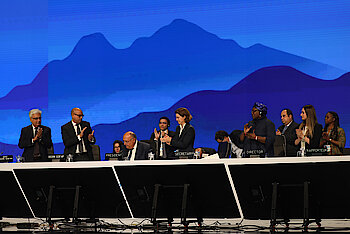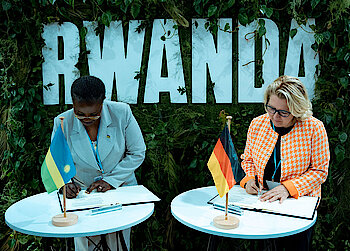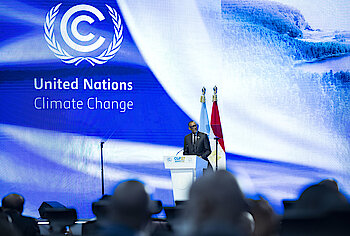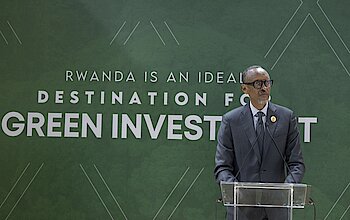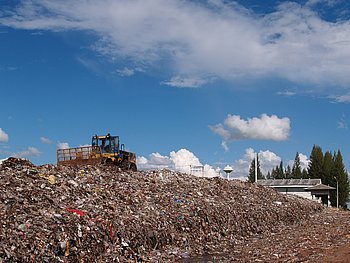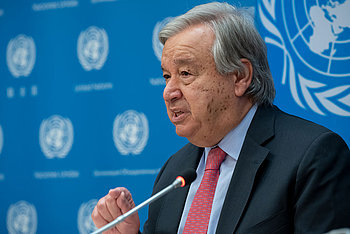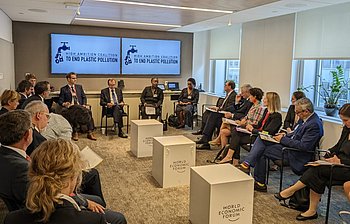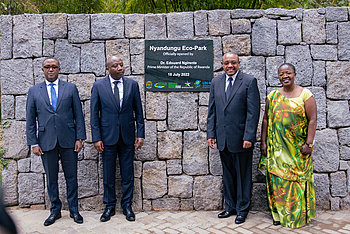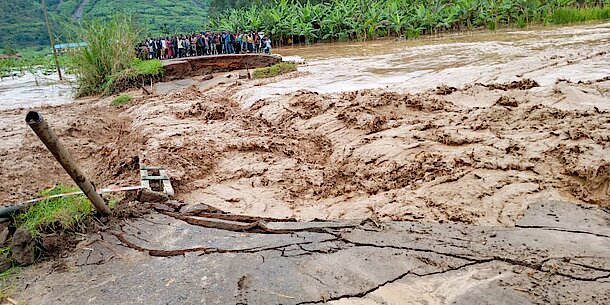
Essential things to know about the loss and damage due to climate change
The evidence of both global and local climate change impact is beyond dispute. There are clear effects of climate change occurring all across the planet. This includes unavoidable risks such as sea-level rise, desertification, and land degradation, while other direct consequences are heatwaves, floods, droughts, and other occurrences.
However, not all countries are equally impacted. There is no doubt that developing countries are mostly affected by climate change impacts; also referred to as loss and damage, and their capacity to deal with these effects is severely constrained due to the high cost and it is beyond their ability to adapt. This has led to an increase in calls for developed countries to compensate developing countries for the harm caused by climate change.
In fact, communities' abilities to avoid, prepare for, and manage with the impacts of climate change are actually hampered by a variety of capacities, experiences, and impediments. Imagine a village that has experienced a devastating flood, where a vulnerable population lives in slums with unsafe housing, a high population density, fragile infrastructures, limited access to essential services, higher proportionate costs of living, food insecurity, and increased health risks. Such a village will face a huge damage and loss from flood than any other community.
Some of the damage and loss could be the loss of human life, damage to property, destruction of crops, loss of livestock, non-functioning of infrastructure facilities and deterioration of health condition owing to waterborne diseases. There are also other associated impacts, such as the damage to infrastructure also causes long-term impacts, like the disruptions to clean water and electricity, transport, communication, education and health care. Sometimes, the damage and loss go beyond and destruct the fundamentals parts of history, identity, language and culture and lead to people migration. This truly indicate that the damages losses are irreversible.
Who is liable for these losses and damages?
This was a critical and controversial question during the climate negotiation from subsequent Conference of Parties (COPs) of the UNFCCC. This all started from the developed nations that have invented the combustion of engine, and they have benefited from burning fossil fuels. This was one key cause of temperature change due to increase of greenhouse gas emissions attributed to it. However, developed countries did not refer the loss and damage as a compensation issue. On other hand, the developing countries are the victim and in addition to this, their carbon footprint are small, such as Africa is responsible for only 4% of global emissions.
The losses and damages is important to be considered because it hampers the sustainable economic development of developing world. Therefore there is a need for resource to respond and rebuilt as developing countries are fighting for mitigation, adaptation as well as covering the cost of losses and damage from climate change induced impacts while their ability is very limited.
As a solution, COP27 delivered an historic outcome on the losses and damage fund, this decision taken in Egypt brings hope for the vulnerable impacted people and community for the global south that represent 80% of the world’s population and it is huge steps taken for climate justice.
What to be addressed under the losses and damage fund (LDF)?
As the losses and damage fund has been established, there is other steps to be taken to make it operational and fund mobilization start. The Loss and Damage Fund has great potential to alleviate the severe shocks due to climate change in vulnerable countries. LDF is an essential aspect for climate justice and it will help to address the geographic imbalance between the cause and effect of climate crisis.
However, for the fund to be effective, the root cause of climate change must be tackled and that involves reducing emissions.
More and more countries will experience the terrible effects of climate change unless emissions are dramatically cut. The world urgently needs to find more resources for mitigation, adaptation and loss and damage so that climate change will not erode humanity's chances to deliver on the sustainable development goals.
Topics
More posts
Rwanda welcomes COP27 outcomes on climate damages fund and keeping 1.5 degree goal alive
The Government of Rwanda has welcomed the outcomes of the 27th United Nations Climate Change Conference, known as COP27. At the meeting, nations…
Rwanda launches new EUR 46M facility to finance public sector climate action
Rwanda has launched a new facility that will invest in climate action led by the public sector on the sidelines of COP27 in Sharm El-Sheik, Egypt. The…
NATIONAL STATEMENT BY PRESIDENT PAUL KAGAME AT COP27
First, I express my appreciation to President Sisi, and the Government and people of the Arab Republic of Egypt, for hosting us in beautiful Sharm El…
PRESIDENT KAGAME LAUNCHES IREME INVEST AT COP27
The President of the Republic of Rwanda, His Excellency Paul Kagame has on November 7, 2022 launched Ireme Invest at the United Nations Climate Change…
Rwanda calls for greater climate action and shares green investment opportunities at COP27
Rwanda will press for more ambitious climate action and share the country’s green investment opportunities at this year’s UN Climate Change Conference…
Why mitigating methane emissions is urgent now?
As methane emissions continue to increase, there are more reasons than ever to reduce methane emissions. Reducing human caused methane emissions is…
UN General Assembly (UNGA 77) has placed Climate Change on top of agenda
UNGA 77 comes at a critical moment for climate and the future of our planet. The impacts of climate change have been observed across the world such as…
REMA’S DG JOINS A ROUNDTABLE MEETING AT UNGA TO DISCUSS CIRCULAR ECONOMY
The Director General of the Rwanda Environment Management Authority (REMA), Juliet Kabera, on 20th September 2022, joined a roundtable meeting in New…
PRIME MINISTER OF RWANDA, DR EDOUARD NGIRENTE, OFFICIATES NYANDUNGU ECO-PARK UNVEILING
Rwanda’s Prime Minister, Dr Edouard Ngirente, has on 18 July 2022 officiated the unveiling of Nyandungu Eco-Park. The event was held on the first day…
